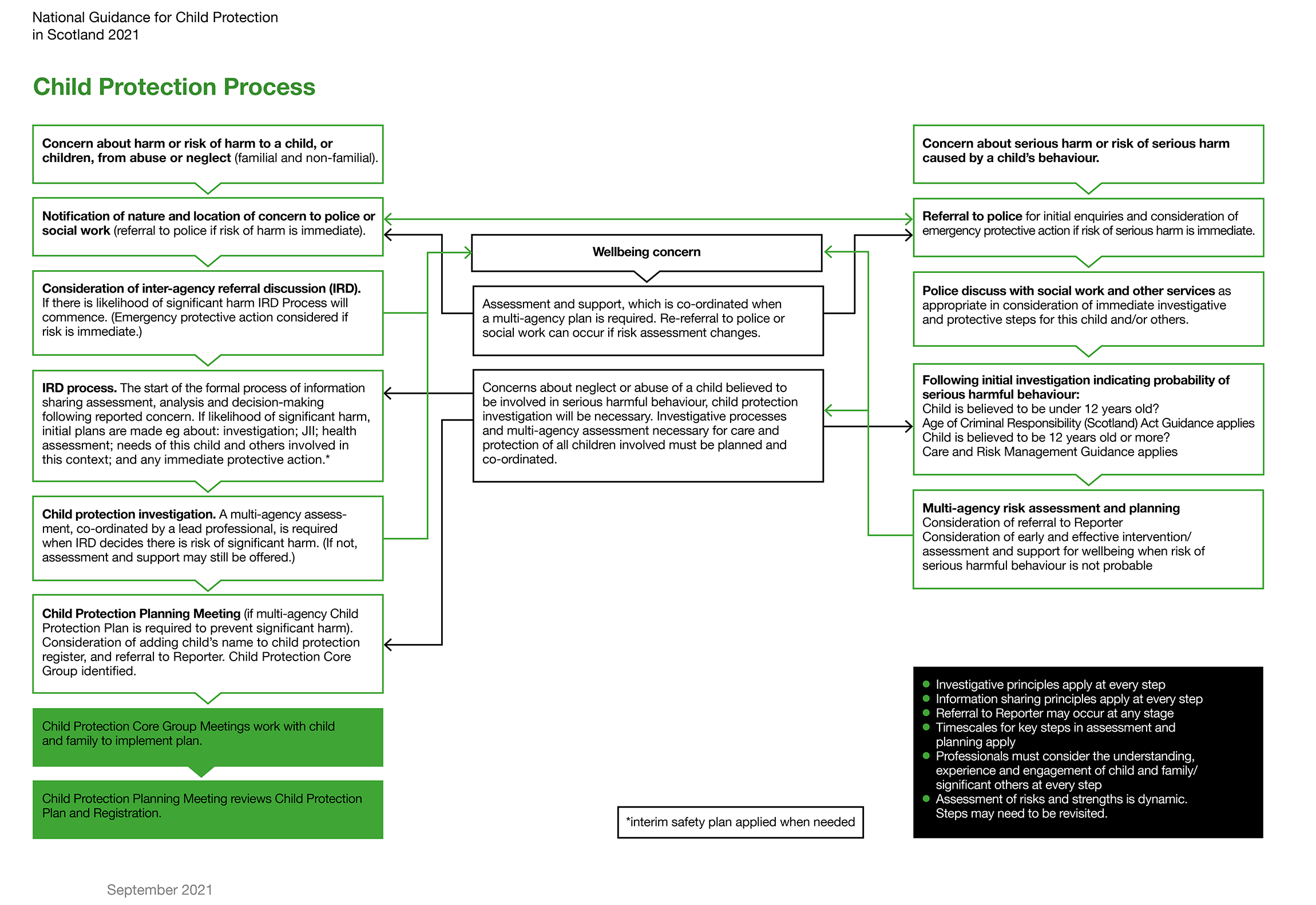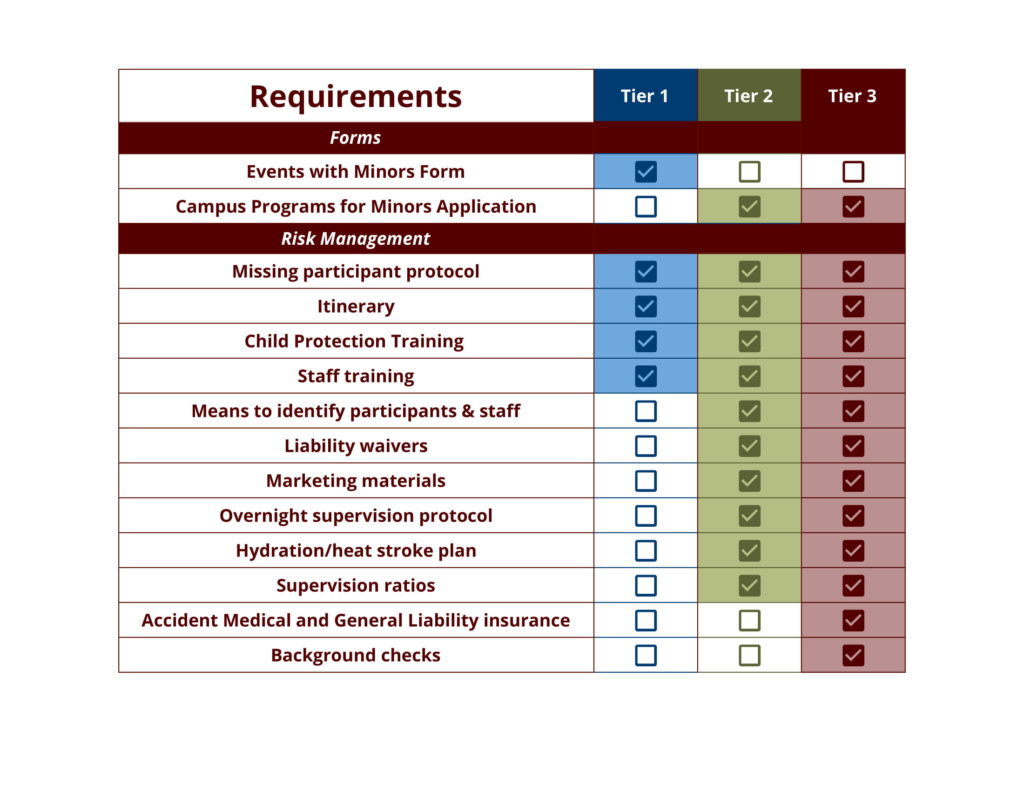
How to Become a Child Protection And Risk Assessment Expert
Are you passionate about making a difference in the lives of vulnerable children? Do you feel a calling to ensure their safety and well-being?
If so, becoming a Child Protection and Risk Assessment specialist might be the perfect path for you. This role is not just about having a job; it’s about making a real impact, offering hope, and securing brighter futures for countless children.
Imagine the fulfillment of knowing that your skills and dedication could change lives. We’ll guide you through the essential steps to kickstart your career in this vital field, equipping you with the knowledge and tools you need to succeed. Let’s explore how you can transform your passion into a rewarding profession and become a guardian angel for those who need it most.

Child Protection And Risk Assessment Role
The role of Child Protection and Risk Assessment is vital in society. Professionals in this field ensure children’s safety and well-being. They identify risks and create plans to protect vulnerable children. This job requires dedication, compassion, and a strong sense of justice. Understanding the key responsibilities and necessary skills is crucial for success.
Key Responsibilities
Child protection officers assess risks to children’s safety. They investigate reports of abuse or neglect. They work with families to resolve issues and promote safe environments. Collaboration with social workers, law enforcement, and community agencies is essential. They also develop and implement safety plans for at-risk children. Monitoring and reviewing cases regularly ensures ongoing protection. Keeping detailed records of cases and actions taken is a must.
Skills And Qualities Needed
Strong communication skills are essential for this role. Empathy and patience help build trust with children and families. Critical thinking aids in assessing situations accurately. Decision-making skills ensure the right actions are taken swiftly. Knowledge of child development and psychology is beneficial. Ability to handle stress and emotional situations is crucial. Being organized helps manage multiple cases effectively.

Educational Pathways
The journey to becoming a child protection and risk assessment professional involves a clear educational path. Understanding the right qualifications is crucial. This ensures you are prepared for the challenges of the role. Let’s explore the educational pathways that pave the way for this career.
Relevant Degrees And Certifications
Start with a degree in social work or psychology. These fields provide foundational knowledge essential for child protection roles. A bachelor’s degree offers the basics. For advanced opportunities, consider a master’s degree. Certifications in child welfare enhance your credentials. They demonstrate commitment and specialized skills. Look for programs accredited by recognized institutions.
Specialized Training Programs
Specialized training can refine your expertise. These programs focus on key areas like risk assessment and child safety. They offer practical knowledge beyond the classroom. Workshops and seminars are valuable resources. They provide hands-on experience and insights from field experts. Online courses offer flexibility for those balancing work and study. Always choose programs that align with current child protection standards.
Gaining Experience
Gaining experience in child protection and risk assessment is a crucial step in your career journey. Practical exposure not only enhances your understanding but also equips you with skills that books can’t teach. This section delves into how internships, volunteer opportunities, and entry-level positions can pave the way for your success in this field.
Internships And Volunteer Opportunities
Internships offer a unique glimpse into the real-world dynamics of child protection. You get to work alongside seasoned professionals, witnessing firsthand the challenges they face and the strategies they employ. Consider seeking internships at local child welfare agencies or non-profits focused on children’s rights.
Volunteer opportunities are equally valuable. They allow you to contribute while learning the ropes. Volunteering at shelters or educational programs can broaden your perspective on the myriad issues children encounter. Your willingness to help can make a significant difference, and you’ll gain invaluable insights along the way.
Think about how these experiences can shape your future career. What skills do you want to develop? How can you make a meaningful impact even as you learn?
Entry-level Positions
Entry-level positions provide a solid foundation for your career in child protection. These roles often require you to handle case documentation, support senior staff, and interact with affected families. Such tasks are essential for understanding the administrative and emotional complexities of the job.
Look for positions such as case assistant or outreach coordinator. These roles offer hands-on experience in risk assessment and intervention planning. You’ll build your expertise by tackling real cases and working directly with communities in need.
Reflect on how these roles align with your career goals. Are there specific skills or areas you want to focus on? Entry-level positions can be the stepping stone to the impactful career you envision.
Developing Expertise
Developing expertise in child protection and risk assessment is crucial. It equips individuals with the skills needed to safeguard children effectively. This specialized knowledge helps professionals identify potential risks and take action. Continuous learning plays a vital role in honing these skills. It involves engaging in advanced training, networking, and practical experience. Let’s explore how to develop expertise in child protection and risk assessment.
Advanced Training Workshops
Attending advanced training workshops enhances your skills. These sessions offer insights into the latest protection strategies. They cover important topics like risk identification and response techniques. Workshops provide hands-on experience through role-playing scenarios. Participants learn how to manage challenging situations effectively. Engaging with trainers and peers enriches the learning process. It helps build confidence in applying new techniques.
Networking With Professionals
Networking with experienced professionals opens doors to valuable resources. It allows you to share knowledge and learn from experts. Regular interactions with peers foster a collaborative learning environment. Networking events and seminars provide opportunities to discuss real-world challenges. They enable you to gain insights from seasoned practitioners. Building connections helps in staying updated with industry trends. It also offers support from a community of like-minded individuals.
Staying Informed
Staying informed is crucial for anyone in child protection and risk assessment. The field constantly evolves, with new challenges and insights. Professionals must be updated to offer the best care and safety. This section explores ways to stay informed, enhancing your skills and knowledge.
Latest Research And Trends
Research in child protection is ongoing. It uncovers new patterns and behaviors. Staying updated with the latest studies is essential. It helps professionals understand emerging risks. Reading journals and attending conferences can be beneficial. Trends show how society affects child safety. They reveal changes in family dynamics and community support. Recognizing these trends can guide better strategies.
Continuous Professional Development
Professional development is key to staying informed. It involves training and workshops. They provide new skills and insights. Certifications enhance credibility and expertise. Engaging with peers in discussions broadens perspectives. Sharing experiences leads to learning and growth. Online courses offer flexible learning options. They cover various aspects of child protection and risk assessment. Investing in continuous learning ensures readiness for any situation.
Career Advancement
Embarking on a career in child protection and risk assessment opens many doors for growth. Professionals in this field often aspire to advance their careers. This can be achieved through leadership roles or by influencing policy and advocacy. These paths not only enhance personal development but also contribute to societal change.
Leadership And Management Roles
Child protection professionals can climb the career ladder by taking on leadership roles. Leading a team involves overseeing child welfare projects and managing staff. These roles require strong communication and decision-making skills. Leaders in this field ensure that child protection measures are effectively implemented. They also mentor junior staff, fostering a supportive work environment. This not only aids in personal growth but also strengthens the organization.
Opportunities In Policy And Advocacy
Advocacy in child protection offers another avenue for career advancement. Professionals can work with policymakers to shape child welfare laws. This involves researching best practices and presenting findings to influence decisions. Engaging in advocacy gives a voice to those who cannot speak for themselves. It also enables professionals to drive change on a larger scale. Those in advocacy positions often collaborate with international organizations. This broadens their reach and impact on global child protection issues.
Ethical Considerations
Embarking on a journey to become a child protection and risk assessment specialist involves not just mastering techniques and processes, but also embracing a strong ethical foundation. Ethical considerations are crucial because you are dealing with sensitive situations that require empathy, integrity, and responsibility. You might find yourself asking, “How can I make the right decisions while respecting everyone involved?” Let’s break down key ethical aspects to guide your path.
Maintaining Objectivity
As a child protection specialist, your ability to remain objective is paramount. Personal biases can cloud judgment, leading to incorrect assessments. It’s vital to approach each case with a fresh perspective. Imagine walking into a room full of children and seeing each one as an individual with their unique story. This mindset helps you make fair, unbiased decisions.
How do you ensure objectivity? Regular self-reflection is key. Assess your thoughts and feelings before making decisions. Engage in discussions with colleagues to gain different viewpoints. This practice not only sharpens your skills but also ensures that your assessments are based on facts rather than assumptions.
Balancing Confidentiality And Reporting
Confidentiality is a cornerstone of trust in child protection roles. Yet, there are times when you must report sensitive information. Striking the right balance between keeping information private and sharing it for the child’s safety is critical. Ask yourself, “What information is vital for protecting this child?”
Consider creating a checklist. Identify information that must be kept confidential and what needs to be reported. For instance, personal family details might remain confidential, while signs of harm should be reported. This structured approach ensures you respect privacy while prioritizing the child’s welfare.
Remember, communication is key. Clearly explain to families what confidentiality entails and when reporting is necessary. This transparency builds trust and minimizes misunderstanding. Have you ever been in a situation where explaining this balance turned a tense meeting into a cooperative conversation? Sharing these experiences can be enlightening.

Challenges In The Field
Entering the field of child protection and risk assessment presents unique challenges. Professionals face difficult situations daily. The work involves safeguarding vulnerable children. It demands resilience and emotional fortitude. These challenges can test one’s limits.
Dealing With Emotional Stress
Emotional stress is a constant companion in this field. Witnessing children’s suffering is tough. It can weigh heavily on one’s mind. Professionals often encounter heartbreaking stories. Managing personal emotions becomes vital. Emotional resilience can prevent burnout.
Support systems are crucial for coping. Colleagues, friends, and therapists can help. Sharing experiences lightens the emotional load. This support is necessary to maintain mental health. Regular self-care routines are beneficial. They help in maintaining emotional balance.
Navigating Complex Cases
Complex cases are frequent in child protection. Each case involves many variables. Legal, social, and psychological aspects intertwine. Professionals must evaluate all factors carefully. They often work with limited information. Decision-making becomes challenging.
Collaborative efforts are essential. Teams of experts provide diverse insights. Their combined expertise aids in resolving cases. Communication with families is vital. Building trust can uncover crucial details. This aids in effective risk assessment.
Frequently Asked Questions
What Qualifications Are Needed For Child Protection?
To work in child protection, a degree in social work or psychology is essential. Many roles require specific training in risk assessment. Certifications in child welfare and safety can enhance your prospects. Relevant experience, either through internships or volunteer work, is highly valued by employers.
How Do I Gain Experience In Child Protection?
Gaining experience in child protection involves volunteering with child welfare organizations. Internships offer hands-on experience in risk assessment. Shadowing professionals can provide valuable insights. Participate in workshops and training sessions to enhance skills. Networking with industry experts can lead to potential job opportunities.
What Skills Are Important For Risk Assessment?
Risk assessment requires strong analytical skills and attention to detail. Communication skills are crucial for interviewing and reporting. Empathy and emotional intelligence help in understanding children’s needs. Problem-solving skills enable effective decision-making. Continuous learning is essential to stay updated with best practices.
How Long Does It Take To Become A Specialist?
Becoming a child protection specialist typically takes several years. A relevant degree takes about four years. Additional training and certifications can take one to two years. Gaining practical experience through internships or volunteer work is crucial. Continuous professional development is key for career advancement.
Conclusion
Embarking on a career in child protection is rewarding. It requires dedication, empathy, and strong communication skills. Training and education are vital steps. Seek opportunities to gain relevant experience. Volunteering can be a great way to start. Join professional networks to stay informed.
Always prioritize the child’s well-being and safety. Stay updated with latest practices and laws. This field offers a chance to make a real difference. Protecting children is a crucial and noble job. Your efforts can change lives. Remember, every step you take matters.
Continue to learn and grow in this important field.





